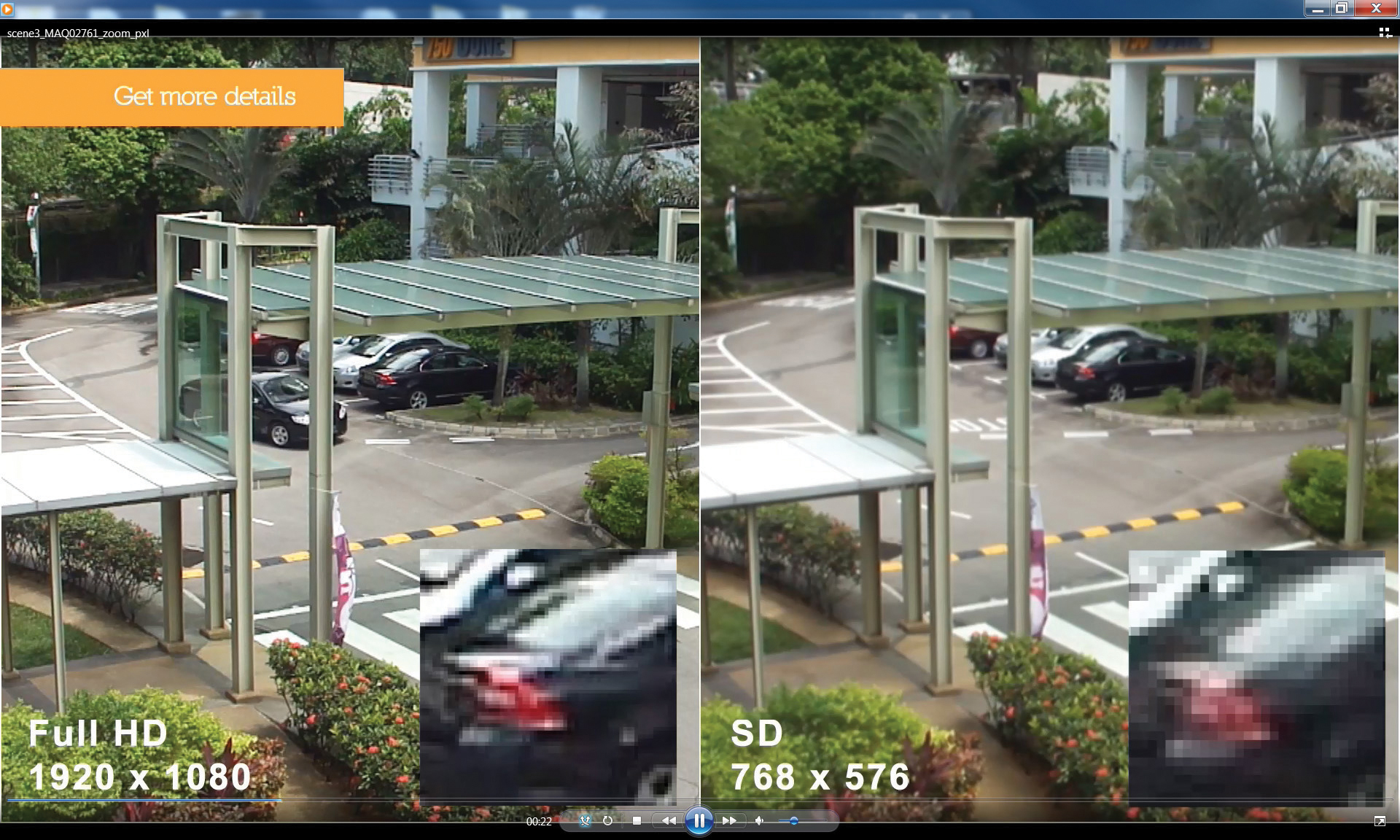
HD video provides six times more pixels than standard-definition PAL/NTSC analogue CCTV
Many ITS and video surveillance systems are now migrating to High Definition (HD), something which has traditionally required high-resolution IP cameras and a complete system architecture overhaul. 7084 Euresys now provides a less expensive and seamless upgrade path with the Picolo.net HD4.
“This allows users to connect four HD-SDI/HDcctv cameras through at least 100m of coaxial cable to a video surveillance IP network. It’s easy to integrate into video surveillance systems as it features an ONVIF Profile S-compliant IP interface, which provides interoperability with major video management software solutions,” says Marc Damhaut, Euresys’s CEO.
HD video provides six times more pixels than standard-definition PAL/NTSC analogue CCTV. Translated to a larger viewing area, that potentially reduces the number of cameras required per installation. HD video also provides sharper images, vastly improving of video analytics or forensic applications performance.
HD-SDI/HDcctv delivers high-quality, uncompressed HD digital video over standard RG-59 coaxial cables at a length of 100m or more. HD-SDI has proven itself in broadcast television over several years. Thanks to the HDcctv Alliance and the Picolo.net HD4, it is now making its way into video surveillance.
“HD-SDI/HDcctv is as easy to install and maintain as analogue CCTV systems. It uses the same coaxial cables as analogue for new or existing installations. HD-SDI/HDcctv-compliant cameras are an alternative to IP cameras for those looking to achieve higher resolution than conventional analogue cameras. With HD-SDI/HDcctv, system integrators and installers no longer need to extend IP Ethernet cabling to every camera in order to deliver the benefits of HD video. Existing coaxial cables can be re-used, considerably reducing installation and maintenance costs,” Damhaut continues.
“HD-SDI/HDcctv has the added benefit of sending live uncompressed video to other devices, such as monitors, without latency. For outdoor applications where IP cameras are a security risk, HD-SDI/HDcctv offers a secure solution: HD-SDI cameras can be used outside the facility while inside being connected to the IP network or to the internet using the Picolo.net HD4.”
“This allows users to connect four HD-SDI/HDcctv cameras through at least 100m of coaxial cable to a video surveillance IP network. It’s easy to integrate into video surveillance systems as it features an ONVIF Profile S-compliant IP interface, which provides interoperability with major video management software solutions,” says Marc Damhaut, Euresys’s CEO.
HD video provides six times more pixels than standard-definition PAL/NTSC analogue CCTV. Translated to a larger viewing area, that potentially reduces the number of cameras required per installation. HD video also provides sharper images, vastly improving of video analytics or forensic applications performance.
HD-SDI/HDcctv delivers high-quality, uncompressed HD digital video over standard RG-59 coaxial cables at a length of 100m or more. HD-SDI has proven itself in broadcast television over several years. Thanks to the HDcctv Alliance and the Picolo.net HD4, it is now making its way into video surveillance.
“HD-SDI/HDcctv is as easy to install and maintain as analogue CCTV systems. It uses the same coaxial cables as analogue for new or existing installations. HD-SDI/HDcctv-compliant cameras are an alternative to IP cameras for those looking to achieve higher resolution than conventional analogue cameras. With HD-SDI/HDcctv, system integrators and installers no longer need to extend IP Ethernet cabling to every camera in order to deliver the benefits of HD video. Existing coaxial cables can be re-used, considerably reducing installation and maintenance costs,” Damhaut continues.
“HD-SDI/HDcctv has the added benefit of sending live uncompressed video to other devices, such as monitors, without latency. For outdoor applications where IP cameras are a security risk, HD-SDI/HDcctv offers a secure solution: HD-SDI cameras can be used outside the facility while inside being connected to the IP network or to the internet using the Picolo.net HD4.”











